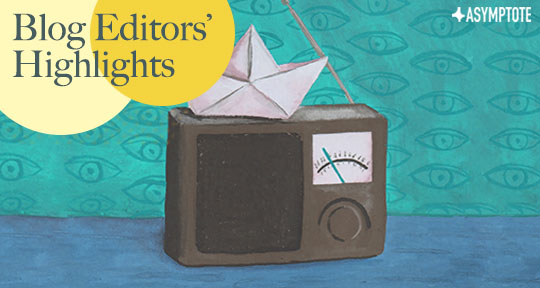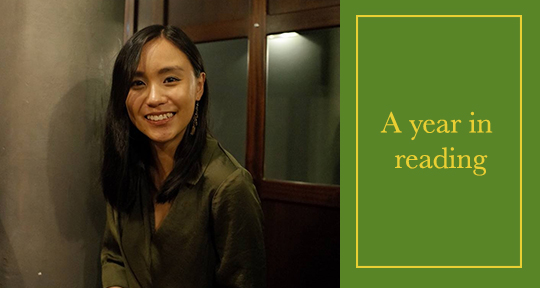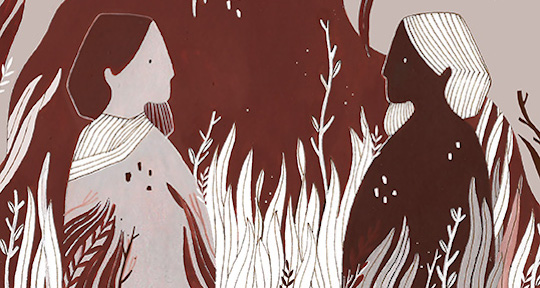Here at the blog, we continue to be amazed by the breadth of the material featured every quarter at Asymptote. From our multilingual special feature to the urgent work of Lebanese artist Mounira Al Solh, who wanted to “recollect. . . Syria through the stories of the people,” and to “live its diversity,” our Summer 2018 issue again proves that incredibly groundbreaking material is being produced far from the centers of Anglo-American literary dominance. Gathering new work from thirty-one countries, this bountiful issue, also our milestone thirtieth, unfolds under the sign of the traveler “looking for [himself] in places [he doesn’t] recognize” (Antonin Artaud). Highlights include pioneer of modern Chinese poetry Duo Duo, Anita Raja on Christa Wolf, and rising Argentinian star Pablo Ottonello in a new translation by the great Jennifer Croft. Today, the blog editors share our favorite pieces from the new issue, highlighting the diversity of cultures, languages, and literary style represented. Happy reading!
Perhaps because of my fascination with multilingual writing and the languages of mixed cultures, I was immediately drawn to the multilingual writing special feature in this issue of the journal. Shamma Al Bastaki’s “from House to House | بيت لبيت” in particular dazzles with its polyphonic quality.
Bastaki’s three poems (“House to House,” “Clay II,” and “Barjeel”) refuse singularity, whether in terms of form, language, or register. Different voices call out from the text of each poem and are brilliantly rendered alongside an audio clip of sounds from interviews conducted by Bastaki herself. (I would recommend listening to the clips before or during your reading of the piece!) The poems are inspired by and based on the oral narratives of the peoples of the Dubai Creek, but speak also to a modern global phenomenon of language mixing and syntax shifting that many around the world will relate to. I enjoyed what Bastaki terms “severe enjambments”—defamiliarizing what is otherwise standard English syntax, creating an instructive experience for native speakers.
Form and language aside, “from House to House” in particular reminded me of the communal nature of colloquial language—the speech that we are most familiar with in our daily lives, and that which we use with our families. To present them in poetry is an attempt to memorialize what is so near and dear to us. The context of Eid is especially well suited to this project, and to the issue’s timing as a whole, in celebration of Eid just past in June. “Barjeel” on the other hand, reminds me of poetry looking back on childhood (Thomas Hood’s “I Remember, I Remember” comes to mind) and on the things that seemed so big then. The Emirati influences and polyphony of “Barjeel” take that idea and renew it—demonstrating how reflection often is not a solipsistic affair, but very often one that takes place with family, parents telling children of their childhood pasts.
—Chloe Lim
READ MORE…








